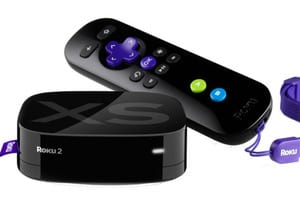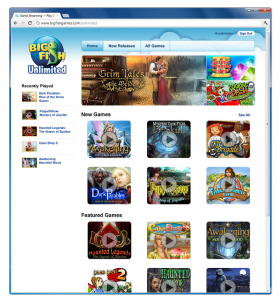 The Casual Connect 2012 Conference on Gaming, a global network of annual marketing and development gatherings, spanning from Seattle to Kyiv to Hamburg and Singapore, returned to Benaroya Hall last week. Big Fish Games hit a resounding high note at the proceedings as the virtuoso soloist with the most far-reaching pitch.
The Casual Connect 2012 Conference on Gaming, a global network of annual marketing and development gatherings, spanning from Seattle to Kyiv to Hamburg and Singapore, returned to Benaroya Hall last week. Big Fish Games hit a resounding high note at the proceedings as the virtuoso soloist with the most far-reaching pitch.
Event high-noter and keynoter, Big Fish Games CEO Paul Thelen, orchestrated the launch of Big Fish Unlimited, a cloud gaming service that will connect the Big Fish fan base online with new offerings just as the gaming expositions and symposia have done for developers by uniting them in Seattle’s premiere concert hall. The new service will make available over 100 games instantly to your personal computer, mobile device or internet connected TVs.
Besides this vast Seatttle cloud bank ready to flood streams across the Web with a downpouring of entertainment, Big Fish also also announced a thundering new partnership with best-selling streaming device maker Roku, and detailed plans to bring Big Fish Unlimited to internet connected TVs in Q4 2012.
 Roku has historically outsold any other streaming player in the U.S., and through this partnership, Roku’s customers in the U.S. will be able to play Big Fish’s high-quality games on their connected TVs. “Big Fish Unlimited is a new way for customers to enjoy our games,” said Paul Thelen, founder and CEO of Big Fish. “While our downloadable PC and mobile games businesses are thriving, Big Fish Unlimited enables us to quickly reach new customers on new devices and in new territories.”
Roku has historically outsold any other streaming player in the U.S., and through this partnership, Roku’s customers in the U.S. will be able to play Big Fish’s high-quality games on their connected TVs. “Big Fish Unlimited is a new way for customers to enjoy our games,” said Paul Thelen, founder and CEO of Big Fish. “While our downloadable PC and mobile games businesses are thriving, Big Fish Unlimited enables us to quickly reach new customers on new devices and in new territories.”

Chumming Bait and Then Bailing Out, Many Have a Sinking Feeling About Zynga
Meanwhile, in far murkier waters in the gaming world, Zynga, the makers of Farmville and Cityville, who have a growing Seattle presence, has come under fire for what some allege is a “bait and sell” scheme among company insiders.As reported by industry analyst Henry Blodget,In April, Zynga conducted a “secondary stock offering” in which insiders dumped 43 million shares of stock at $12 a share, raking in about $516 million.Last week, four months later, Zynga reported a horrible quarter, and the stock plunged to $3.In other words, Zynga insiders cashed out at exactly the right time.
The stock sales recently reported have led some to speculate that Zynga execs were dumping stock because they knew their company was struggling worse than they let on. But those who sold the stock, including the head of Zynga, still own plenty more and are feeling plenty of pain from Zynga’s current tumble in the market.
Zynga’s April stock offering was managed by Morgan Stanley, Goldman Sachs, Bank of America, and other premiere Wall Street underwriters. All of the stock sold in the offering was sold by Zynga insiders. None of the cash raised in the offering went to the company.
The Zynga underwriters were alledgedy paid ~$15 million of fees to arrange this cash-out. [24×7]


















